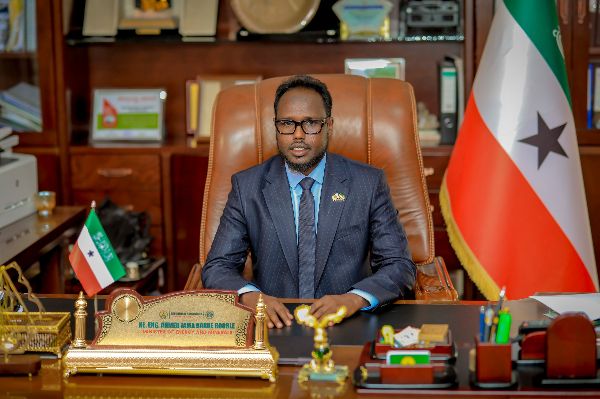
Message from the Minister
Minister of Energy & Minerals
Welcome to the official website of the Ministry of Energy and Minerals of the Republic of Somaliland.
Our Ministry is entrusted with the vital responsibility of developing, managing, and regulating the nation’s energy and mineral resources. These sectors are central to Somaliland’s sustainable economic growth and to improving the quality of life for our people.
We are committed to expanding access to modern, affordable, and renewable energy, while also promoting responsible investment in mining and petroleum. Guided by the principles of transparency, sustainability, and innovation, we strive to ensure that our natural resources serve as a foundation for prosperity, resilience, and opportunity for all.
I invite you to explore our website to learn more about our policies, projects, and initiatives, and to join us in building a brighter and more sustainable future for Somaliland.



